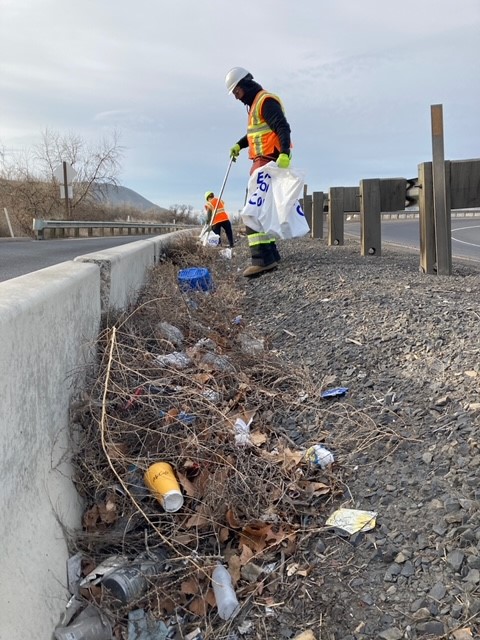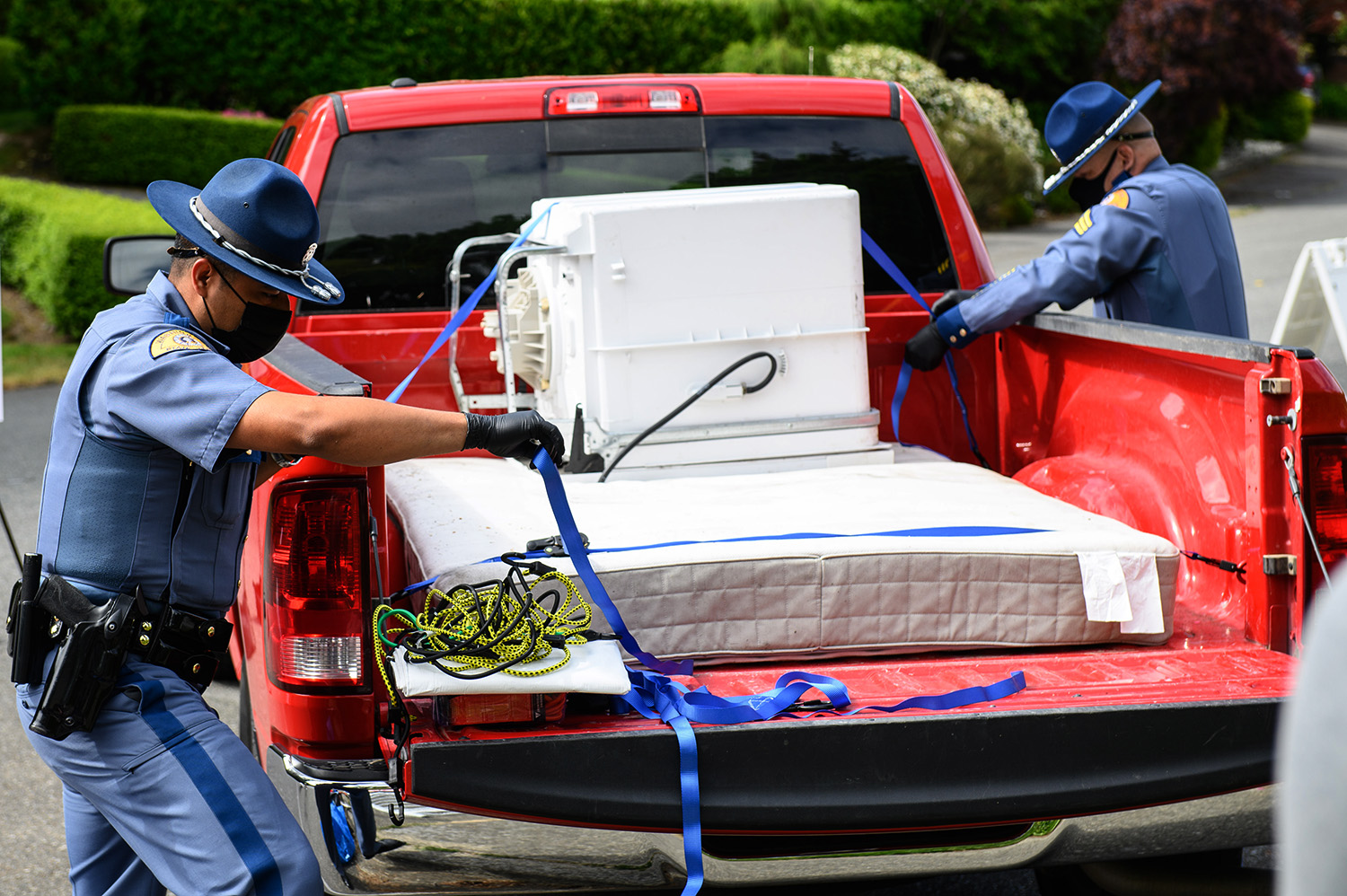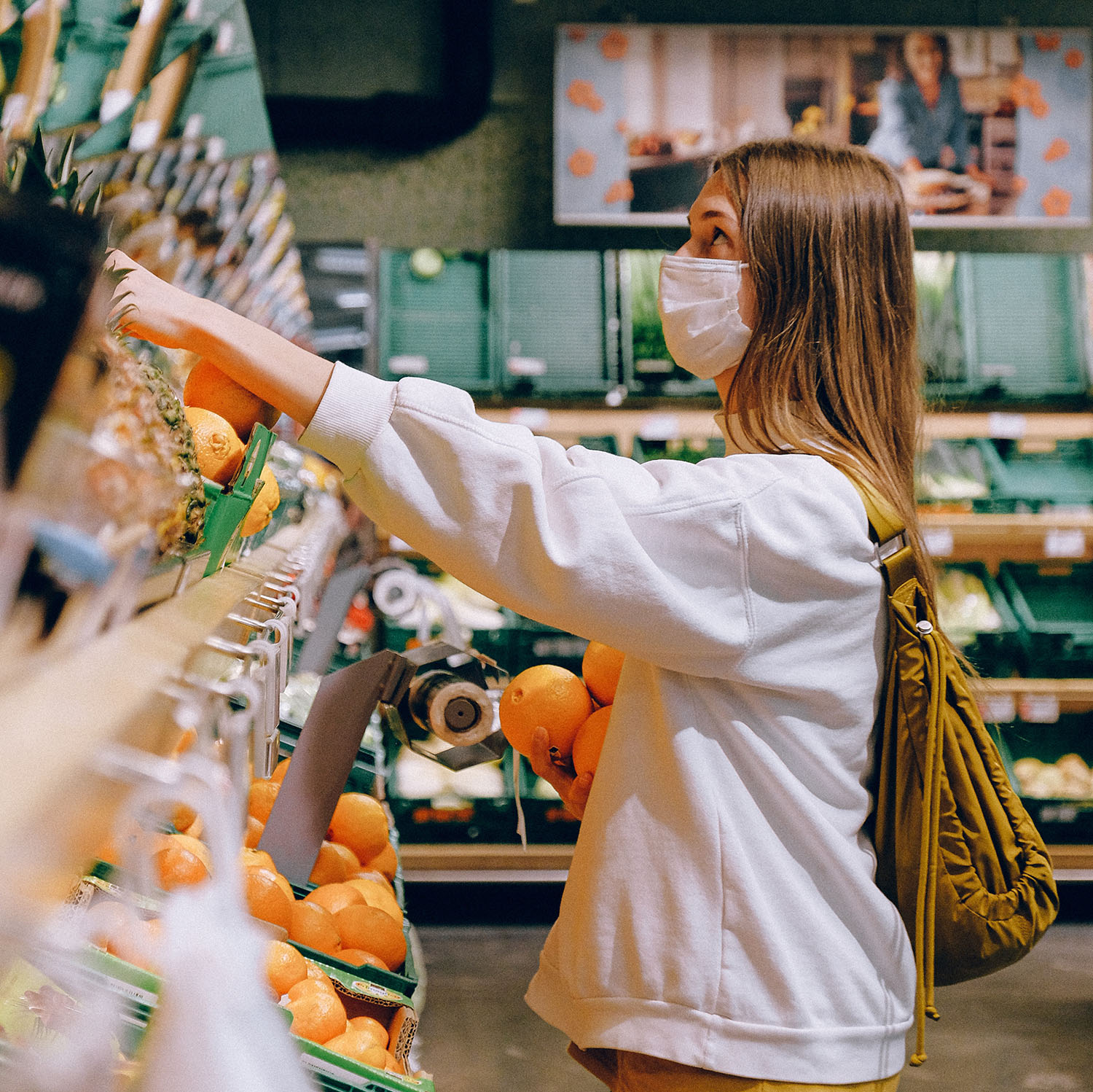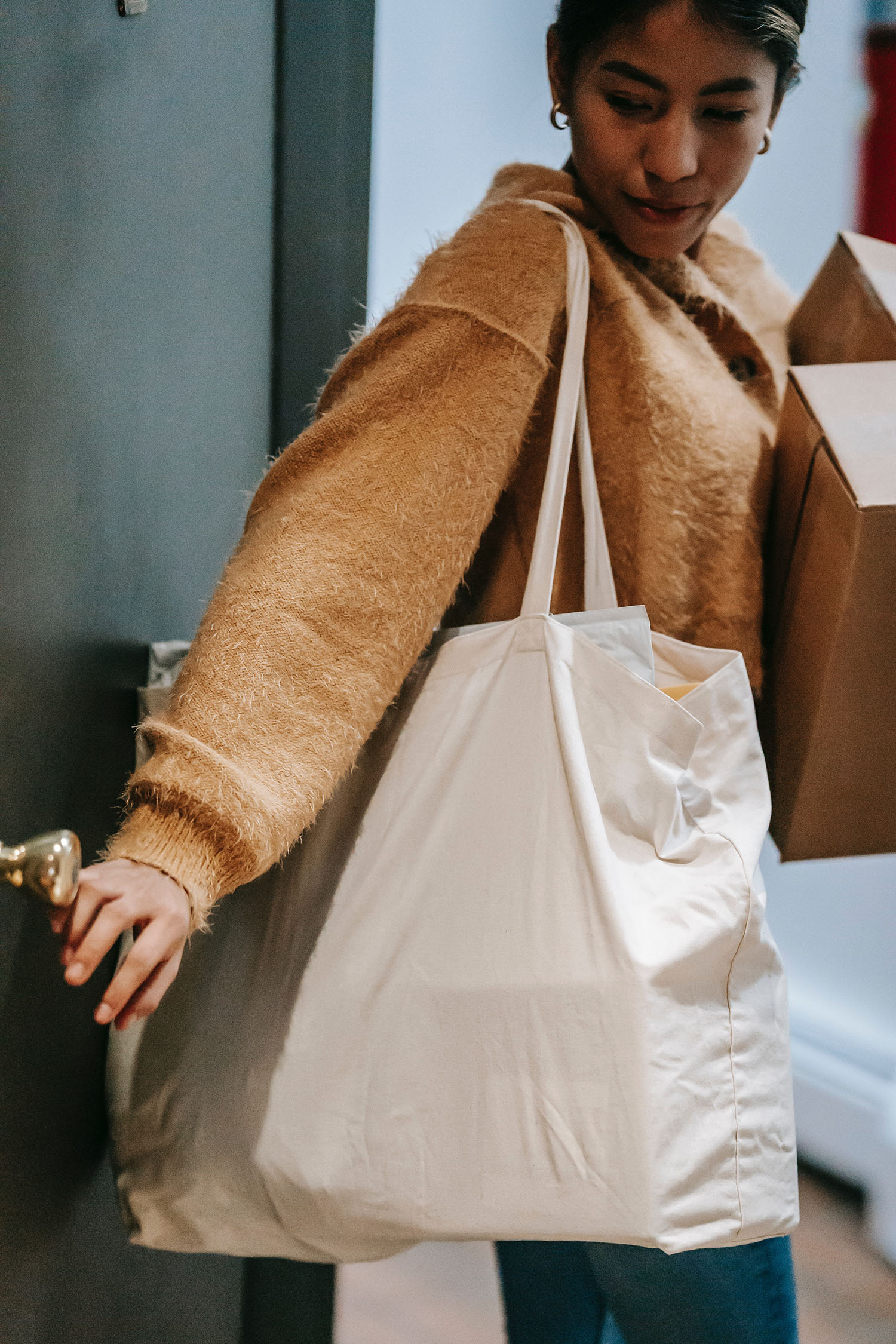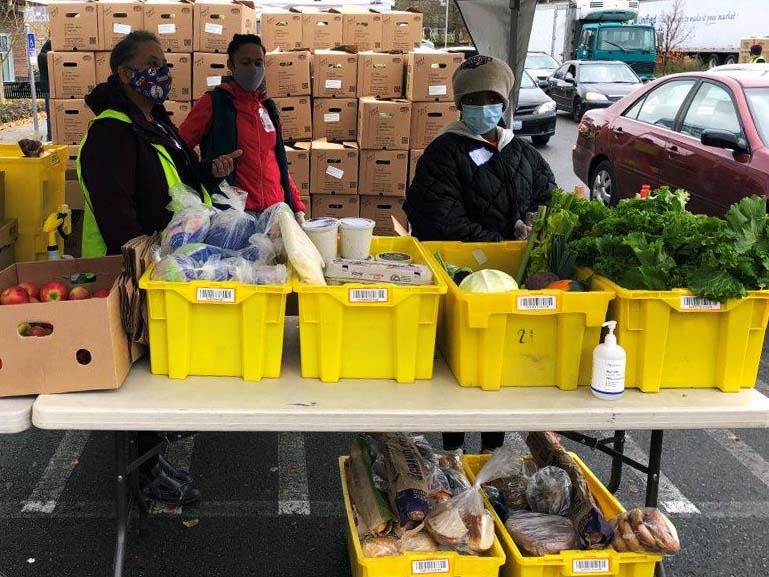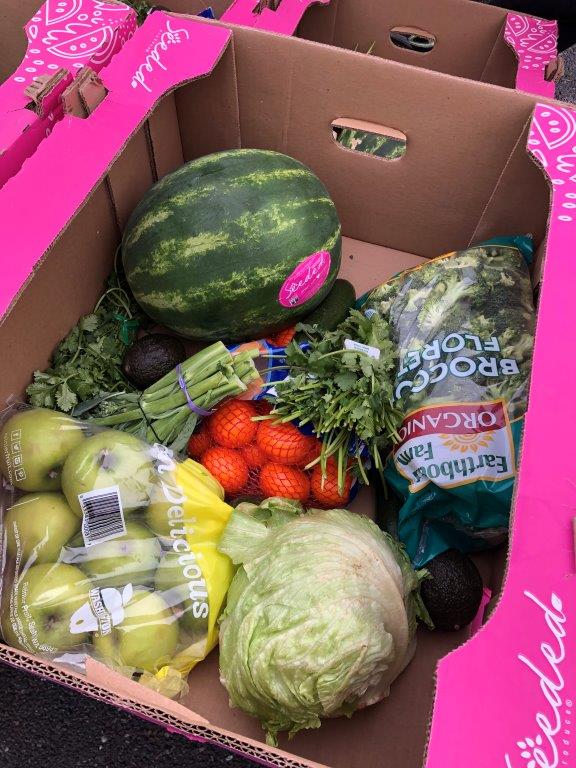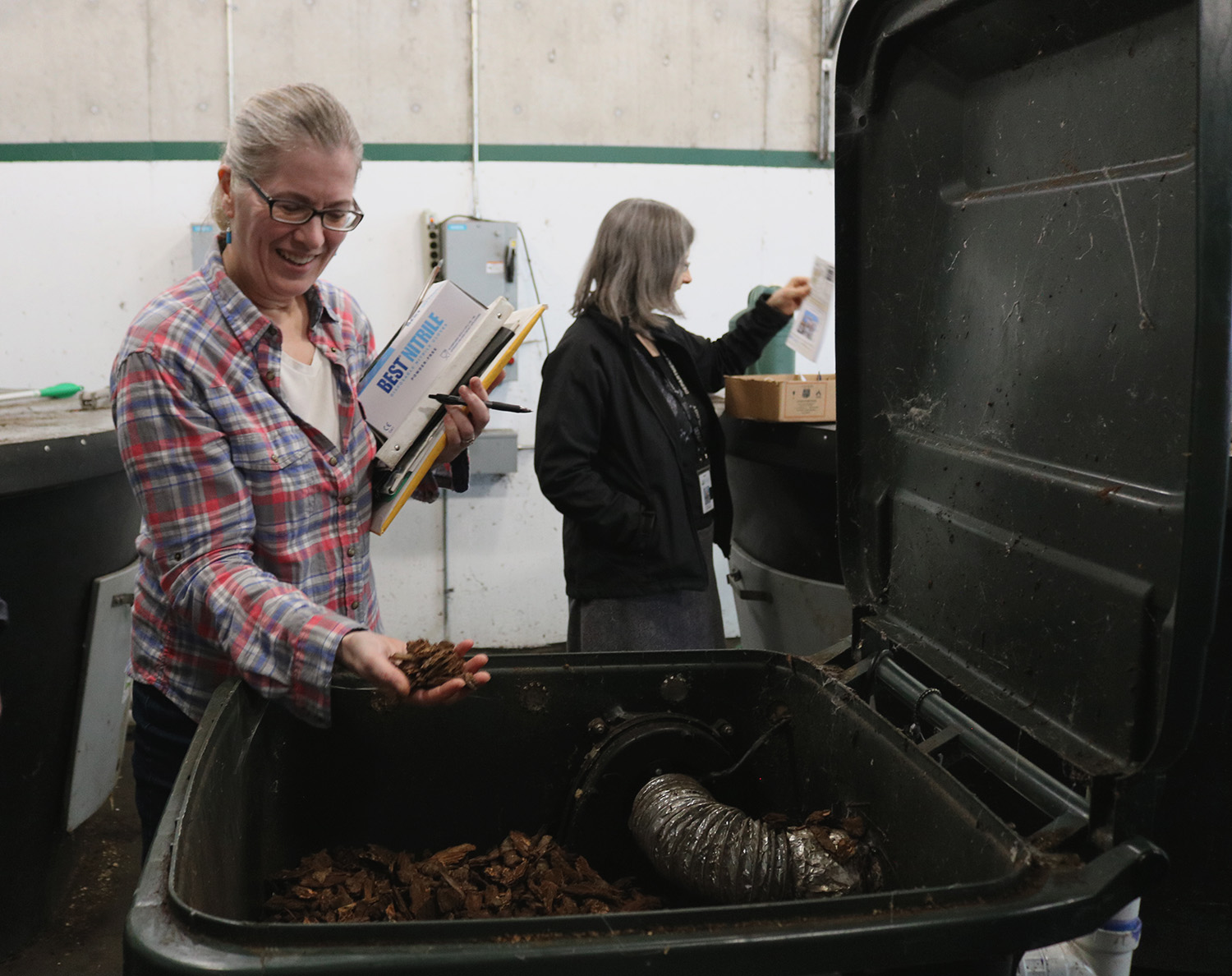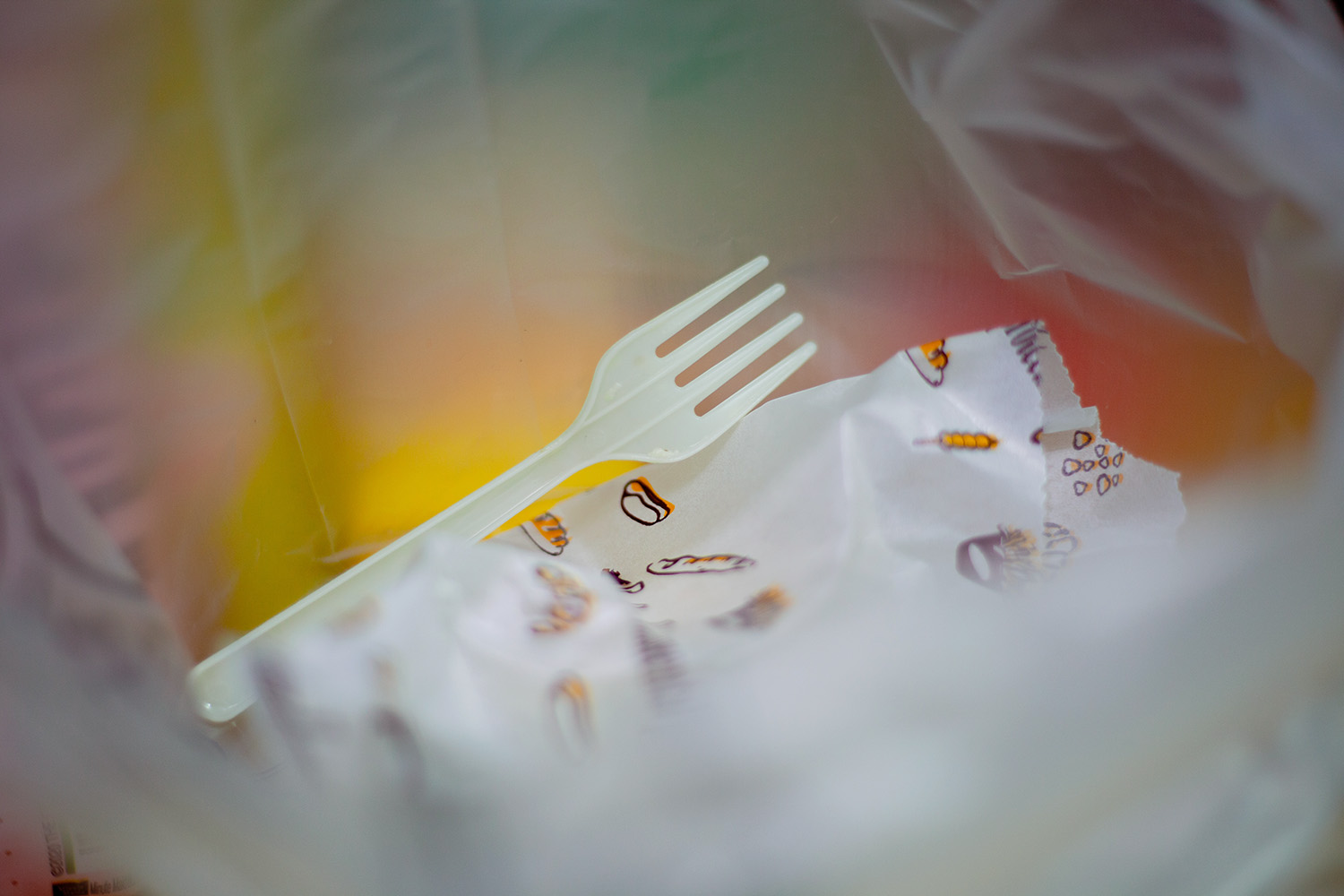
Invest in our planet ™. That's the nation's theme for Earth Day 2022.
For most of us, investing means depositing money into a financial account or into an idea or proposal. But on this Earth Day, we're looking at how we can invest in the planet in a very different way — by withdrawing unwanted items from the environment, and taking steps to prevent future deposits.
This isn't about money. We're talking about removing and preventing waste that often winds up in the environment, whether it's litter, plastics, or food.
Less is often more and when it comes to protecting the environment — less plastic bags, less litter, less food waste, and less single-use serviceware adds up to more sustainable living.
Over the past year, our Solid Waste Management program invested time, staff, and other resources into four initiatives that will make a huge impact on the environment and lead to a more sustainable and higher quality of life in Washington's communities.
Litter prevention
Roadside litter is a major problem in Washington. Our research shows that 75% of Washingtonians don’t litter (you know who you are, and thank you!), but the actions of those who do litter result in expensive cleanups, dangerous road conditions, loss of community pride and tourism, and big environmental impacts.
Littering is against the law and fines range from $103 to $5,000. The largest fines are for cigarette butts that can result in wildfires and unsecured items that can cause car crashes. Items blowing off or falling from vehicles cause up to 40% of roadside litter and more than 300 crashes every year on Washington's roads.
According to our last litter study in 2004, about 18 million pounds of waste accumulates annually on roads and in communities. Reports we get have us believing there's even more litter today. To address the problem, we dedicate about $5 million to litter pickup programs across the state every year. These programs combine to remove between 4-5 million pounds of litter, which only scratches the the problem's surface. Our partners at the Washington State Department of Transportation (WSDOT) also spend approximately $4-5 million annually on litter pickup and disposal costs.
Litter is a big problem with a simple solution: stop littering in the first place.
What we're doing about it
We worked with consultants and stakeholders to create the "We Keep WA Litter Free" brand in English and Spanish (LitterFreeWA.org and PorUnWAImpecable.org) to help prevent litter in Washington. We’re using this umbrella brand across a number of litter prevention campaigns focused on different littering behaviors.
As part of this effort, we’re working with WSDOT to install new “Keep Washington Litter Free” highway signs and to post litter prevention messaging on their electronic highway signs.
Using social marketing to affect behavior change
How do we convince people to stop littering? One approach we’re using is a social marketing framework to help change behaviors. Social marketing is built on research that shows awareness and education alone rarely change behaviors. Instead, strategies that aim to overcome barriers and provide people with personal, relevant motivators are used to create meaningful and sustainable behavior change.
We invested in audience research to help us understand the barriers and motivators to helping people change their littering behavior. We also tested messages and creative concepts with our priority audiences. This research shaped our campaigns, messaging, and distribution of behavior change tools, like cargo nets and vehicle litter bags.
The first litter prevention social marketing campaign developed under the new brand was "Secure Your Load for Safer Roads" (SecureLoadsWA.org and SujetaTuCargaWA.org). This bilingual campaign focuses on ensuring people properly secure their pickup truck or trailer loads every time before driving.
We work with a few counties a year to distribute free cargo nets to residents at special community events. Local government partners collect data on the number of unsecured loads coming into their solid waste facilities before and after the giveaways. A decrease was measured in the number of unsecured loads immediately following the first year of the campaign. In 2022, King, Thurston, and Yakima counties will be distributing the cargo nets.
The second campaign developed under the "We Keep WA Litter Free" brand is "Not Littering: Simple As That." This new campaign launches in mid-May 2022 and focuses on commonly littered items such as beverage containers and food-related packaging. The campaign encourages people to get a litter bag for their vehicle and to toss their trash in a bin at their destination.
In addition to new commercial and social media ads, we're launching a pilot program to distribute free reusable litter bags at four Fred Meyer locations in King and Pierce counties. The litter bags will be branded with the "We Keep WA Litter Free" logo. We will evaluate the pilot program and plan to expand the distribution of vehicle litter bags statewide in September with support from a comprehensive marketing plan. This includes advertising at more than 400 gas stations.
What you can do
We need everyone’s help to keep roads, communities, and natural areas healthy, safe, and litter free. There are many small daily choices you can make that have big impacts.
- Get and use a litter bag in your vehicle.
- When you’re driving, toss your trash in a bin at your destination or a stop along the way.
- Cover and secure items you’re hauling in a pickup or trailer.
- If you smoke, keep a portable ashtray in your vehicle.
- Encourage your friends and family to live litter free
Plastic bag ban
On Oct. 1, 2021, Washington joined California, Oregon, New York, and others in the pursuit of greater waste reduction by implementing the statewide single-use plastic bag ban. This new law prohibits single-use plastic carryout bags in all retail and grocery stores, restaurants, takeout establishments, festivals, and markets.
The intent of the ban is to move away from using single-use bags to reusable bags. By focusing on waste reduction through continued reuse, Washingtonians are making the shift to address waste “upstream” and prevent materials from becoming waste in the first place.
Plastic bags are a major contaminant in Washington’s recycling facilities, waterways, roadways, and the environment. Washington's bag ban will benefit the state's recycling system by reducing contamination in the recycling and compost systems and promoting reuse and recycled content. At a glance, this law requires:
- Businesses to charge at least eight cents for reusable paper and plastic bags
- The fee may not be collected from anyone using a food benefit voucher (including EBT, SNAP, WIC, TANF, and FAP)
- Paper and plastic reusable bags are required to be labeled as reusable and show their required percentages of minimum recycled content. Reusable plastic bags must also meet thickness requirements, and be labeled as such, to ensure reuse up to 125 times.
This ban does not apply to food banks and food assistance programs. However, those programs are encouraged to take actions to reduce the use of single-use plastic carryout bags.
Helping businesses comply with the law
We collaborated with local governments, retailers, business associations, and non-profits to develop a Bag Ban Outreach Toolkit that's formatted for accessibility and translated into 17 languages. This toolkit is available to download on Ecology’s Bag Ban website.
Our bag ban website also has information and resources including:
- A link to the law's language
- Details on allowed and banned bags
- Frequently Asked Questions
- Our observation reporting form
- A link to sign up for our email list to receive bag ban updates
Helping people understand the law
Providing resources to the public is one of the most important aspects of the bag ban's implementation because almost everyone in Washington is affected by it. A few details that are helpful to keep in mind are listed below.
Why are plastic bags still allowed at all?
You might wonder why thick reusable plastic bags are still permitted. Well, not everyone has access to other types of reusable bags or the upfront capital to purchase more expensive, but also more durable bags. The compliant thick plastic film bags allowed by this law alternatives that are tested for reuse up to 125 times and are available to customers for much lower costs than cloth or woven bags.
Another reason they're included is that many businesses, especially those that serve "wet items" also have no alternative except for these thick reusable plastic bags. This is due to paper bags quickly breaking down when in contact with wet items.
What is the fee for a compliant thicker reusable bag from retailers?
While many businesses are charging eight cents per bag, that’s not the case for every business. The law requires business establishments to charge a minimum of eight cents per large paper bag or compliant plastic carryout bag. However, businesses are allowed to use their discretion to charge more than this amount if they need to recoup costs or to provide a greater financial incentive for customers to reuse the bags they already have.
As Washington transitions away from single-use plastic bags, we'll continue to provide technical assistance, education, and outreach materials to businesses and the public.
What you can do
- Bring Your Own Bag (BYOB)! To reduce waste and avoid paying for paper or thick reusable plastic bags, bring your own reusable bags. If you don’t have reusable bags, the lower cost thick compliant bags that retailers are selling are reusable up to 125 times - and should be!
- Tell us if businesses are still using the banned, single-use plastic bags by filling out and submitting the observation reporting form. We can then reach out to these businesses and provide education on the law to them and bring them into compliance. We can’t provide technical assistance or enforcement without your reports.
- Don't recycle plastic bags or other plastic film in curbside or drop off recycling bins. If you have plastic bags that you want to recycle, please use the drop-off locator tool on the Plastic Film Recycling web-site to find drop off locations that handle this material.
Food waste reduction
Food waste is one of today's greatest challenges, with substantial environmental, social, and economic impacts. According to the 2015 food waste and waste food baseline data estimates, about 390,063 tons of edible food waste are thrown away across Washington each year. This presents a major opportunity to address food insecurity by reducing food waste.
Food is a valuable resource. We should all respect it, the people who grow it, and the land from which it comes. We all have an obligation to use food well.
What we are doing
The state's food waste reduction plan maps how we can meet the 2030 food waste reduction goals. We worked with many agency partners, including the Washington departments of Agriculture, Commerce, the Office of Superintendent of Public Instruction, and food system experts to develop the Use Food Well Washington Plan, which focuses on three key strategies:
-
Prevention: Prevent and reduce the amount of food that's wasted
-
Rescue: Rescue edible food that would otherwise be wasted and ensure the food reaches those who need it
-
Recovery: Support productive uses of inedible food materials, including using it for animal feed, energy production through anaerobic digestion, and for off-site or on-site management systems including composting, vermicomposting, or other biological systems
The Use Food Well Washington Plan has potential to reduce edible food waste by at least 295,000 tons per year. This is critical when over two million Washingtonians experienced food insecurity in 2020 (food insecurity means access by all people at all times to have enough food for an active, healthy life).
The state's goal is to reduce generated food waste by 50% and to reduce at least half of edible food waste by 2030. The plan includes 30 recommendations across all sectors of the food system. By focusing on federal and state policy, funding, public education, and infrastructure development, these recommendations can help Washington meet its 2030 food waste reduction goals and create a more resilient food system.
The plan’s recommendations carry potential annual net benefits in excess of $1 billion by reducing disposal costs, developing new markets and uses for waste, and avoiding unnecessary food purchases. Our calculations show full implementation of the plan could also help Washington avoid more than $150 million in annual costs associated with climate change.
What you can do
- Research local hunger relief organizations and check out charity food donation guidance from the Washington State Department of Health
- Review the Washington State Department of Agriculture's hunger relief resources.
- Donate edible food that would otherwise go to waste. To donate edible food, search "food banks" or "hunger relief" near me. Be sure you understand their donation guidance and criteria.
Single-use serviceware law
Takeout, delivery, and casual dining typically come with single-use, disposable food serviceware made of plastic. We use nearly one trillion disposable food service products each year in the United States. These materials add unnecessary waste to landfills, can contaminate recycling and compost, and end up as litter and pollution in the environment.
Using single-use items comes with numerous direct and indirect costs:
- Environmental costs from natural resource extraction, climate impacts, and plastic pollution
- Business costs to purchase and dispose of these items
- Taxpayer costs in solid waste management and litter clean-up
- Potential human health costs associated with PFAS, micro-plastics, and other harmful substances in single-use items
- Lost opportunity costs when more sustainable ways aren't created to meet peoples' needs without using something only once
What we are doing
The single-use food serviceware law began on Jan. 1, 2022. It's important to note that the single-use food serviceware law is not a ban on single-use serviceware. The law's intent is to reduce waste by requiring food service businesses and institutions to no longer automatically include these items in customer orders.
Serviceware requirements are straight forward. Rather than automatically providing customers or patrons with single-use items, businesses have one of three choices:
- The business can ask the customer if they want the items and have them confirm yes or no
- The customer can request the items
- The business can prepare a self-serve station where customers can grab only the items they want or need
The new law applies to nearly all food service providers, including temporary vendors like food trucks and farmer’s markets. School and other institutional cafeterias are also required to comply with the law. Schools can apply for funding through the Waste Not Washington School Awards to help with the transition to durable materials or setting up self-serve stations for students.
The food serviceware items covered under this law are:
- Utensils, such as forks, knives, spoons, chopsticks
- Drink stirrers, straws, splash sticks, and cocktail picks
- Cold beverage cup lids. Exemptions include drive-throughs, to-go orders, and event arenas that meet the minimum occupancy thresholds outlined in the law
- Sauce or condiment packets, sachets, and containers
- Bundled single-use items are not allowed
We collaborated with local governments and business associations to develop a single-use food serviceware outreach toolkit that is also formatted for accessibility and translated into 17 languages. This toolkit is available to download on our serviceware website.
What you can do
This law ensures people ordering food in Washington receive only the single-use items they want. This means no more junk drawers filled with chopsticks, plastic forks and knives, or condiment packets that were never asked for and may never be used!
- Take only what you need — when offered or asking for serviceware, take only what you need so you don’t waste more items than necessary.
- BYO! Bring Your Own reusables and avoid having to throw anything away.
- Inform your local businesses of this law or tell us if they continue distributing serviceware without confirming with customers that they want it. We're happy to provide the education and technical assistance needed to bring these businesses and organization into the new era of less waste.
Many small actions reap huge rewards
Each law that's passed and every personal decision that's made add up to a sum greater than the individual parts. Preventing litter, reducing food waste, and keeping plastics out of the waste stream are all incremental steps toward protecting the environment and providing a better quality of life in communities across the state.


